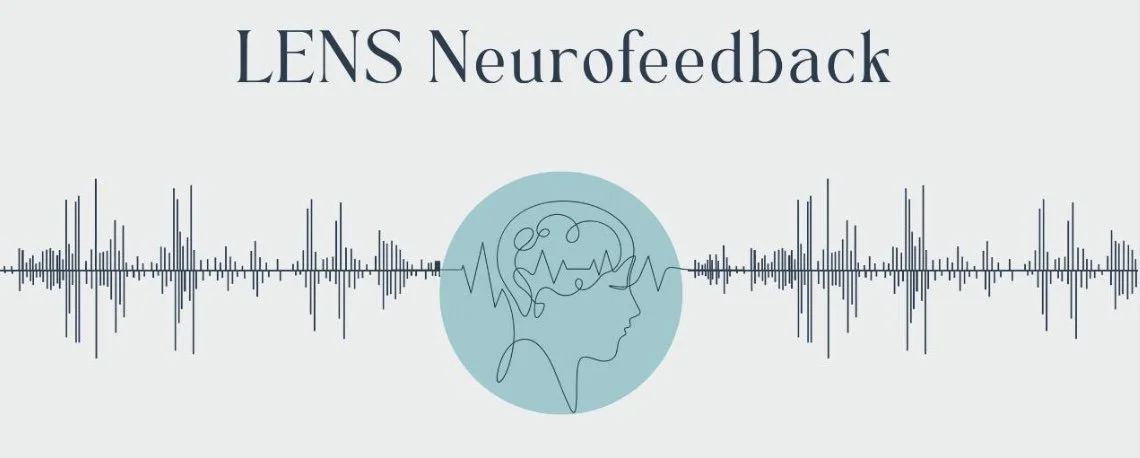
LENS Neurofeedback—A gentle, non-invasive approach to nervous system healing for all ages. At Liquid Life IV Therapy, we offer LENS Neurofeedback to support clients from children to older adults. Serving, Mecklenburg County and communities across Virginia.

Begin your reset.
Does this sound familiar?
Your mind is racing, your body feels tense, and no matter how much rest you get, you still wake up exhausted.
Maybe your shoulders ache, your thoughts spin at night, or the smallest tasks feel overwhelming.
You’ve tried to push through — better sleep, stricter routines, more willpower — yet nothing seems to truly help.
You might find yourself wondering:
“Why can’t I just feel like myself again?”
“What’s wrong with me?”
“Will it always be this hard to relax?”
It’s not a lack of motivation or strength.
It’s your nervous system working overtime, stuck in survival mode.

Neurofeedback
I am in awe, grateful and reminded why we do what we do — watching lives transform in big and small ways…
Here are just a few examples of the changes our clients have experienced (while protecting their personal information) so you can understand the depth of LENS Neurofeedback. A service I drove 6 hours for is now right here in the heart of our little town.
-A client who once struggled with tremors, balance and anxiety now walks with confidence and reports feeling calm and alive.
-Another client who previously found it hard to express emotion recently shared heartfelt words with a loved one.
-Someone living with chronic pain now moves more freely and reports significant relief.
- And others describe renewed energy, mental clarity, and a brighter outlook on life.
Each journey is unique — and every small step toward balance matters.
One thing we love about LENS is that you do not have to have a diagnosis or symptoms to benefit. Many people simply want optimal function — more clarity, better focus, calmer emotions, improved sleep, or an overall sense of balance.
At training, they described LENS like this:
Imagine your computer has 30 tabs open and everything feels slow and overloaded. When you restart it, everything resets and works smoothly again. That’s what LENS does for the brain.
LENS does not shock you.
It does not change your personality.
It does not make you gain or lose information.
We do not turn anything off and back on again.
It simply sends a tiny, gentle signal to say:
“Hey brain… tighten up. Be nicer to me. Calm my nervous system. Help me focus. Improve sleep. Reduce pain.”
We can’t target the exact symptom you want gone, but the brain is powerful and does its own “clean up” or internal software update so it can function better.
One of my favorite parts of the training was how the instructors weren’t salesy at all. They simply said, “If you love someone, LENS them.” Because it’s truly that good.
A typical LENS Neurofeedback plan includes about six sessions.
Your first session lasts roughly one hour and is $149. You can also choose to add 20 minutes of relaxation time on our infrared grounding mat for $10, helping your brain “rest and digest.”
Each follow-up session lasts about 45 minutes and is $100.
Most clients notice meaningful changes within six sessions, though some experience results sooner — and more complex cases may take a little longer.
What to Expect
LENS Neurofeedback sessions are relaxing and easy.
Small sensors placed on the scalp read your brain’s activity and send back a tiny signal — far weaker than a cellphone — to support natural self-regulation.
The first appointment lasts about 60 minutes
Ongoing sessions are 35–40 minutes, once per week for about 6 weeks
Most people don’t feel anything during the session — but many notice shifts within days: improved sleep, less tension, clearer thinking, and a greater sense of calm.
“I didn’t realize how much tension I was holding until it was gone.”
Mechanism of Action: LENS Neurofeedback
LENS (Low Energy Neurofeedback System) works by delivering an extremely faint electromagnetic signal to the scalp — about 1/4000th of the strength of a cellphone signal — while measuring the brain’s electrical activity (EEG).
1. Gently Disrupting Stuck Patterns
The brain can get “stuck” in inefficient patterns after stress, injury, or chronic tension — like being caught in a loop.
LENS introduces a tiny, non-invasive signal that acts as a gentle “interruption” or mirror to the brain’s own frequency. This momentary feedback helps the nervous system recognize and reset maladaptive patterns of activity.
2. Promoting Self-Regulation
When the brain detects this feedback, it begins to self-correct, shifting toward more flexible and efficient states.
This process promotes autonomic nervous system balance — calming overactive stress responses and improving communication between brain regions.
3. Improving Neuroflexibility
By restoring flexibility, LENS can help reduce symptoms related to anxiety, depression, pain, trauma, fatigue, brain fog, migraines, ADHD, and movement disorders.
Rather than training the brain through conscious effort (like traditional neurofeedback), LENS allows the brain to reorganize itself subconsciously — similar to how the body resets balance after a gentle nudge.
4. Physiological Effects
Research and clinical observation suggest LENS may:
Normalize brainwave amplitudes
Improve cerebral blood flow and oxygenation
Reduce sympathetic overdrive (fight-or-flight)
Support better sleep, focus, and emotional regulation

LENS Neurofeedback is especially helpful for:
Anxiety & Reactivity: Persistent worry, restlessness, hypersensitivity, irritability, or panic
Cognitive Struggles: Brain fog, poor memory, trouble focusing, or disorganization
Mood Dysregulation: Sadness, anger, emotional outbursts, or numbness
Sleep Issues: Difficulty falling or staying asleep, unrefreshing sleep
Fatigue & Burnout: Physical or emotional exhaustion, especially after chronic stress
Concussions & Head Injuries: Ongoing headaches, foggy thinking, sensitivity to light/noise, slowed processing, focus difficulties
Trauma Effects: Hypervigilance, shutdown, dissociation, or chronic body tension
Pain or Headaches: Especially stress-related, neurological, or without a clear medical cause
Neurodivergence: ADHD and Autism Spectrum traits
Behavioral Challenges in Children: Impulsivity, difficulty following directions, or emotional overwhelm
Support for the Whole Family: Parents often benefit from LENS while caring for neurodivergent or sensitive children — when one person heals, the entire system shifts
Perinatal Injury: Outcomes of prenatal drug exposure, cerebral palsy, or birth trauma (oxygen deprivation, muscle stiffness, coordination or processing challenges, emotional dysregulation)
Insurance & LENS Neurofeedback – Important Information
Liquid Life does not bill insurance or submit claims on behalf of clients.
If you would like to explore possible insurance reimbursement, please follow these steps:
Pay for your LENS Neurofeedback session as usual.
You will automatically receive a receipt.Share your receipt with your primary care provider, NP, MD, or licensed therapist.
We do not provide diagnoses.Ask your provider if they can document medical necessity and submit the claim from their office, or advise you on submitting it through your out-of-network benefits.
Contact your insurance company directly to ask whether biofeedback services (CPT code 90901) are covered under your plan.
Coverage and reimbursement are determined by your insurance company and are not guaranteed.


